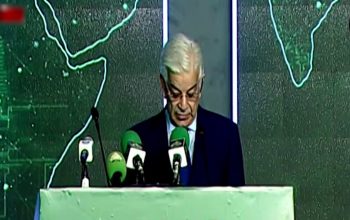Inflation rate jumped to 48-year high in January due to a double-digit increase in cost of almost all essential goods, in what appears to be a prelude to what the nation will embrace because of record currency devaluation, higher taxes and electricity prices.
The Consumer Price Index (CPI), the inflation monitor, rose by 27.6% in January compared to the same period last year, the Pakistan Bureau of Statistics (PBS) reported on Wednesday, beating the finance ministry’s forecast of 26% hike.
It is the highest reading since May 1975 when the CPI hit 27.8%. However, the rate hike is in line with market expectations due to a major breakdown in supplies of goods. Around 9,000 containers of food items, raw materials and other imported goods have been stuck at ports due to shortage of foreign currency.
Pakistan’s inflation rate is the 19th highest in the world, which may further pick up pace due to the rupee devaluation, hike in electricity tariff and imposition of more taxes to meet the conditions agreed with the International Monetary Fund (IMF). The rupee lost 16.4% of its value in the past five working days.
The inflation rate skyrocketed to 32.3% in rural areas, while it rose to 24.4% in the cities, according to the PBS. There is a huge increase in the food inflation, mostly because of disruption of supply chains and weak checks. Food inflation rose steeply to 45.2% in rural areas and 39% in cities last month.
The prices are soaring at a time when the economy has slowed down significantly and poverty and unemployment are rising. The prices of a majority of consumer items remained out of the reach of the people, and the major surge was witnessed in rural areas, where income levels are already low.
The food group prices surged by 43% in January compared to the same month a year ago, according to the PBS data. But the prices of perishable food items soared 61.6%, which still showed a significant demand and supply gap. The prices of onions increased by 468% in cities and 530% in villages, compared to a year ago followed by an 83% increase in rates of chicken.
The wheat – an essential staple food of an overwhelming majority of Pakistanis – is now getting out of reach for them. Its prices increased over 78%, while the wheat flour prices also increased by 61.3%, according to the PBS. Rice –another staple food –became expensive by 66% last month.
The pulses increased by over 50%, vegetable ghee and cooking oil prices surged by around 43% last month compared to a year ago, according to the PBS. The prices of alcoholic beverages and tobacco groups also soared by 36%.
The transport group prices increased 39% last month, as the government gave a Rs35 per litre fuel price shock to the consumers after it failed to enforce the writ of the state, when petrol pump owners started hoarding the commodity.
It has been revealed that many petrol stations are owned by the police officers and when the government tried to enforce its writ the police did not cooperate, a highly-placed government functionary told The Express Tribune.
The non-food inflation rate increased to 15.6% in cities and 21% in rural areas.
Core inflation, which was calculated after excluding the volatile energy and food prices, increased in January to 15.4% in urban areas and 19.4% in rural areas. The core inflation was still higher than the State Bank’s upward revised policy rate of 17%, indicating the underline inflationary pressures.
The prices of the housing, water, electricity and gas fuels groups went higher by nearly 5% but this could also spike further in the coming months. The inflation rate for the stationary items was over 47%, making education more expensive and, in many cases, unaffordable.
For the July-January period of the current fiscal year, the data showed that average inflation came in at 25.4%, which was more than double the official target of 11.5% for the current fiscal year, set before the floods. The average inflation rate in villages was nearly 29%.
The amended SBP law makes the central bank responsible for containing inflation and ensuring price stability. But the law did not suggest any penalties for missing the inflation target.
Read the full story at the express tribune website.


